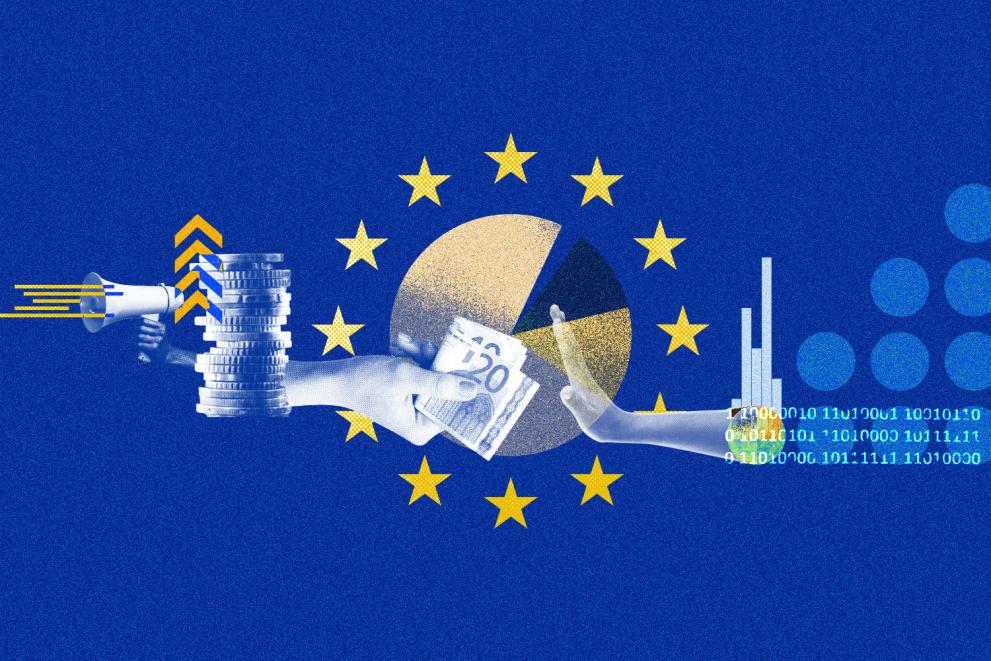PIF Report 2023: progress in legislation and increased transparency

Press release no. 13/2024
PDF version
Today the European Commission adopted its 2023 Annual Report on the protection of the EU’s financial interests (‘PIF’ report). The report shows that the overall number of cases of fraud and irregularities detected and reported increased by 8% in 2023. Recommendations to EU and national authorities focus on increasing digitalisation and strengthening governance of the fight against fraud.
Johannes Hahn, Commissioner for Budget and Administration, said: “Today’s report shows that in 2023, the EU and its Member States continued to step up their efforts to protect EU taxpayers’ money. As new challenges emerge, anti-fraud structures also adapt and must continue doing so. Digitalisation of the fight against fraud must be at the core of such efforts. Following the example of the Commission’s Anti-Fraud Strategy Action Plan, we recommend that Member States shape their anti-fraud strategies to make full use of new technologies in the fight against fraud.”
The number of cases of fraud and irregularities reported by the competent EU and national authorities increased by 8% compared to last year (from 12 455 to 13 563 in total). This increase is cyclical and in line with the progress in the implementation of the EU’s spending programmes. The irregular amounts related to these cases increased to €1.90 billion.
The PIF report underlines progress in key areas of anti-fraud legislation across the EU. 24 Member States have adopted national legislation to transpose the Whistleblower Protection Directive. In 2023, the Commission presented a package of anti-corruption measures. Furthermore, political agreement was reached on recast of the Financial Regulation, which aims at strengthening transparency in the use of the EU funds, digitalisation of the fight against fraud and fraud risk management.
Detection and reporting of suspected fraud and irregularities can still be improved, as can their follow-up. Notable differences between Member States persist. National anti-fraud architectures keep on developing, still underpinned by different strategic approaches that range from national anti-fraud strategies to regional, sectoral or even authority or programme level anti-fraud policies.
The 35th Annual Report on the protection of the EU's financial interests published today is available on OLAF’s website.
Background
The EU and Member States share responsibility for protecting the EU’s financial interests and fighting fraud. Member State authorities manage more than 85 percent of EU expenditure and collect the EU’s traditional own resources. The Commission oversees both of these areas, sets standards and verifies compliance.
Under the Treaty on the Functioning of the European Union (Art 325(5)), the Commission is required to produce an Annual Report on the Protection of the EU’s Financial Interests (known as the PIF Report), detailing the measures taken at European and national level to counter fraud affecting the EU budget. The report is based on information reported by the Member States, including data on detected irregularities and fraud. The analysis of this information allows assessing which areas are most at risk, thereby to better target action at both EU and national level. The report is accompanied by six working documents, providing additional and detailed information on several topics addressed in the report itself.
OLAF mission, mandate and competences:
OLAF’s mission is to detect, investigate and stop fraud with EU funds.
OLAF fulfils its mission by:
• carrying out independent investigations into fraud and corruption involving EU funds, so as to ensure that all EU taxpayers’ money reaches projects that can create jobs and growth in Europe;
• contributing to strengthening citizens’ trust in the EU Institutions by investigating serious misconduct by EU staff and members of the EU Institutions;
• developing a sound EU anti-fraud policy.
In its independent investigative function, OLAF can investigate matters relating to fraud, corruption and other offences affecting the EU financial interests concerning:
• all EU expenditure: the main spending categories are Structural Funds, agricultural policy and rural development funds, direct expenditure and external aid;
• some areas of EU revenue, mainly customs duties;
• suspicions of serious misconduct by EU staff and members of the EU institutions.
Once OLAF has completed its investigation, it is for the competent EU and national authorities to examine and decide on the follow-up of OLAF’s recommendations. All persons concerned are presumed to be innocent until proven guilty in a competent national or EU court of law.
For further details:
Pierluigi CATERINO
Spokesperson
European Anti-Fraud Office (OLAF)
Phone: +32(0)2 29-52335
Email: olaf-media@ec.europa.eu
https://anti-fraud.ec.europa.eu
X: @EUAntiFraud
LinkedIn: European Anti-Fraud Office (OLAF)
Theresa ZAHRA
Deputy Spokesperson
European Anti-Fraud Office (OLAF)
Phone: +32 (0)2 29-57270
Email: olaf-media@ec.europa.eu
https://anti-fraud.ec.europa.eu
X: @EUAntiFraud
LinkedIn: European Anti-Fraud Office (OLAF)
If you’re a journalist and you wish to receive our press releases in your inbox, please leave us your contact data.
Details
- Publication date
- 25 July 2024
- Author
- European Anti-Fraud Office
- News type
- OLAF press release